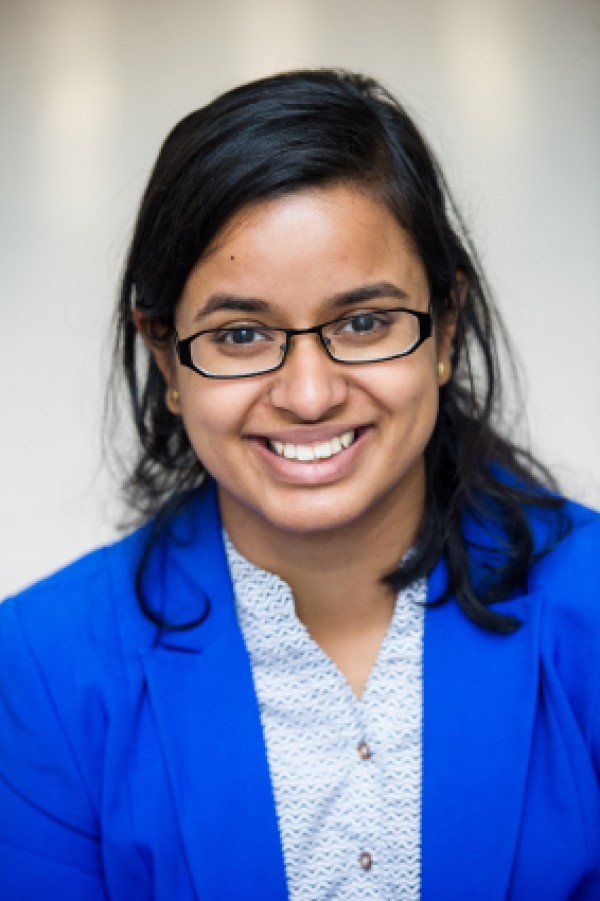
The Discribe team
Professor Adam Joinson
Adam is Professor of Information Systems at the University of Bath, and is Director of Discribe. His background is in behavioural science applied to security and new technology. He is deputy director of the EPSRC Centre for Doctoral Training on Trust, Identity, Privacy and Security in Large-scale infrastructures (TIPS-at-scale), as well as the online behaviour and risk lead for CREST, the Centre for Research and Evidence on Security Threats. He is also a co-applicant and privacy / reducing harms lead for the EPSRC National Research Centre on Privacy, Harm Reduction and Adversarial Influence Online (REPHRAIN).
Professor Lizzie Coles-Kemp
Lizzie is a qualitative researcher who uses creative engagement methods to explore everyday practices of information production, protection, circulation, curation and consumption within and between communities. She took up a full-time academic post in 2008 and prior to joining Royal Holloway University of London she worked for 18 years as an information security practitioner. Lizzie’s focus is the intersection between perceptions and narratives of individual and community security and technological security. Her research specialises in public and community service design and consumption. Lizzie is currently an EPSRC research fellow with a research programme in everyday security and digital service design.
Professor Pete Burnap
Pete Burnap is Professor of Data Science & Cybersecurity at Cardiff University. He is Director of Cardiff’s NCSC/EPSRC Academic Centre of Excellence in Cyber Security Research (ACE-CSR), and leads AI for cybersecurity research at Airbus DTO on a part-time secondment basis. He is co-director of the WEFO-funded Data Innovation Accelerator (DIA) – a £3.75m investment in upskilling SMEs in South Wales to develop innovative AI-driven products and services. He sits on the UK Government's AI Council, advising on the implementation of the industrial strategy in AI and the Data Economy.
Professor Awais Rashid
Awais Rashid is Professor of Cyber Security at University of Bristol, where he is also Director of the National Research Centre on Privacy, Harm Reduction and Adversarial Influence Online (REPHRAIN) and the EPSRC Centre for Doctoral Training on Trust, Identity, Privacy and Security in Large-scale Infrastructures. His research focuses on cyber-physical systems and software security and how security intersects in complex ways with human and organisational factors.
Dr. Joanna Syrda
Joanna Syrda is a Lecturer in Business Economics at the University of Bath. She is an economist with a particular research interest in economic analysis of digital security, measuring and quantifying private and external costs and benefits, and the application of behavioural and experimental economics to the understanding of agents’ valuations and decision-making.
Professor Niki Panteli
Niki Panteli is Professor of Digital Business at Lancaster University, and a visiting Professor at the Department of Computer Science of the Norwegian University of Science and Technology. An advocate of the sociotechnical perspective, she has an established international research record on the topics of virtual collaborations and online communities, the implementation and evaluation of Information Systems, digital platforms and digital transformation.
Professor Matt Williams
Matthew Williams is Professor of Criminology in the School of Social Sciences at Cardiff University and Director of HateLab and the Social Data Science Lab. His main areas of research activity are Cybercrime, Human Factors in Cybersecurity, Hate Crime, Hate Speech and Extremism Online. To date he has been involved in 40 research projects, amounting to a grant capture of £14.5 million. He advises the Home Office, Foreign, Commonwealth and Development Office, and the Office for National Statistics. He sat on HMG’s Cybercrime Reduction Partnership and currently sits on the Commission for Countering Extremism’s Academic Practitioner Network.
Dr. Dan Page
Dr. Daniel Page is a Senior Lecturer within the Department of Computer Science, University of Bristol. His research focuses on challenges in cryptographic engineering, implementation of and implementation attacks on cryptographic primitives and arithmetic in particular. The pre-eminent venue for such work is arguably Cryptographic Hardware and Embedded Systems (CHES); Dr. Page received the best paper award at CHES 2012, regularly serves on the CHES Programme Committee, and acted as Program (co-)Chair at CHES 2018.
Dr. Oishee Kundu
Oishee is a Research Associate at the University of Bath. She specialises in the study of science, technology, and innovation (STI) policy. She completed her PhD in 2021 at the University of Manchester.
Prior to joining Discribe, she was involved with Infuse, a WEFO-funded programme to build capacity and skills for delivering innovative future services in the Cardiff Capital Region.
During her time in Infuse, Oishee designed "Caffael" - a public procurement boardgame for school children which was tested in multiple schools. She enjoys creating immersive learning environments and building bridges between university research and the wider public.
Dr. Sami Ullah
Sami is a Postdoctoral Research Associate working within the Bristol Cyber Security Group at the University of Bristol. His research focuses on challenges in reverse engineering binaries, vulnerability analysis, machine learning for binary analysis, patch analysis, and exploitation techniques for memory vulnerabilities.
His current research involves studying how hardware security advances can lead to benefits through the software eco-system - to software developers and end-users.
Dr. Laura Shipp
Laura is a postdoctoral research fellow at Royal Holloway, University of London who joined the Discribe project in 2023.
Her PhD was interdisciplinary and worked between human geography and cyber security and was undertaken as part of the Centre for Doctoral Training in Cyber Security at Royal Holloway.
Her research focuses on FemTech, period tracking apps, and feminist approaches to understanding the use of technology.
Prior to this, her background was in Geography. She has held a range of academic and consultancy posts, with experience in digital trust, IoT, cyber security culture, and teaching.
Dr. Lowri Williams
Lowri is a Research Associate at Cardiff University.
Her experience to date has involved supporting small-medium businesses with a range of research-based data science solutions through industry-focused collaborations.
Her research interests include natural language processing, sentiment analysis, data/text mining, language resources, machine learning, and adversarial machine learning.
Her transferable skills have allowed her to collaborate with multidisciplinary experts in research areas such as cybersecurity.
Fereshteh Hojatisaeidi
Fereshteh is the Discribe Hub+ Operations Manager based at the University of Bath. She offers administrative support and project management for the Discribe Hub+ team.
Challenge fellows
Our Discribe challenge fellows are leaders in their own field who will work with us to connect DSbD ecosystem stakeholders with the work of discribe and their own discipline.
Each is assigned to a particular work theme, and has responsibility for tracking impact within that topic space, as well as co-ordinating working groups of industry, Government and academia to address specific, tightly focussed problems.
Professor Alistair Brandon-Jones
Alistair Brandon-Jones is a Full Chaired Professor in Operations and Supply Management at Bath University and a Visiting Professor at DTU Denmark and Hult International Business School. Between 2014 and 2017, he was Associate Dean for Post-Experience Education, responsible for MBA, EMBA, EngDoc, DBA and DBA South Africa. He was formerly a Reader at Manchester Business School, an Assistant and Associate Professor at Bath University, and a Teaching Fellow at Warwick Business School, where he also completed his PhD.
Alistair is an active empirical researcher focusing on e-enabled operations and supply, and professional service operations. This research has involved collaborations with a wide variety of organisations in the private and public sector and has been supported by funding from the Design Council, ESRC, EPSRC, Welsh Assembly Government, and Local Government Association.
He is also co-author for the world’s leading portfolio of Operations and Supply Management textbooks. These include Operations and Process Management, the fifth edition published in 2018; Operations Management, the ninth edition published in 2019; Essentials of Operations Management, the second edition published in 2018; and Quantitative Analysis in Operations Management, published in 2008.
Professor Genevieve Liveley
Genevieve is Professor of Classics at the University of Bristol and is leading on the Digital Security by Design (DSbD) Futures Project. She is a narratologist with particular research interests in the stories that programme cultural and sociotechnical narratives about human interactions with new technology.
Professor Mike Levi
Michael Levi has been Professor of Criminology at Cardiff since 1991, and has taught there since 1975. His main work has been understanding and accounting for the linkages and differences between white-collar and organised crime, and in the ways that different major crimes for gain are affected by their public and private sector controls. His mapping out of the local and transnational aspects of financial crimes and their control (including by anti-money laundering efforts) has won him major awards from the British and American Societies of Criminology, and a lifetime Tackling Economic Crime Award. His current projects include Fraud and its relationship to Pandemics and Economic Crises from 1850 to the Present (British Academy); the impact of technologies on transnational organised crime and criminal markets (ESRC PaCCS); cyber-enabled fraud and money laundering projects (Home Office, Australian Institute of Criminology, Max Planck Institute Freiburg).
Professor Mark Burdon
Mark Burdon is based in Brisbane, Australia and is a Professor at the Queensland University of Technology’s School of Law and Digital Media Research Centre.
Mark’s primary research interests are privacy, information privacy law and the regulation of information security. His focus on the complex privacy issues that arise from the sensorisation of everyday devices and infrastructures. These issues are explored significantly in his book, Digital Data Collection and Information Privacy Law, published by Cambridge University Press.
Mark’s recent research examines the privacy issues that arise from smart homes particularly involving domestic violence reporting and commercial uses of smart home sensor data. He is also a chief investigator on an Australian Research Council Linkage grant on optimising digital compliance processes in the Australian financial services sector. Previous research includes a diverse range of multi-disciplinary projects involving: the regulation of information security practices; legislative frameworks for the mandatory reporting of data breaches; data sharing in e-government information frameworks; privacy and consumer protection in e-commerce and information protection standards for e-courts.
Dr. Claude Heath
Claude Heath is Senior Research Fellow in the ethnography of virtual production skills, data-sharing and collaboration practices in the creative sector at StoryFutures, The National Centre for Immersive Storytelling, Royal Holloway University of London. He has worked in participatory security modelling and automated decision-making in HCI, developing new drawing, physical modelling and visual research methods on a wide variety of research projects and in consultancy for the DCMS and elsewhere, and has project-managed complex minimum viable prototype research in all of these areas.
His 2014 thesis was on representing human interaction, 'Drawing out interaction: Lines around shared space' from the cognitive science (COGSCI) research group in Electronic Engineering and Computer Science at Queen Mary University of London. His artwork is held in many national and international art collections including the British Museum, Government Art Collection UK, Henry Moore Institute, Kupferstichkabinett Museum of Prints and Drawings Berlin, and Pinakothek Moderne Munich.


















